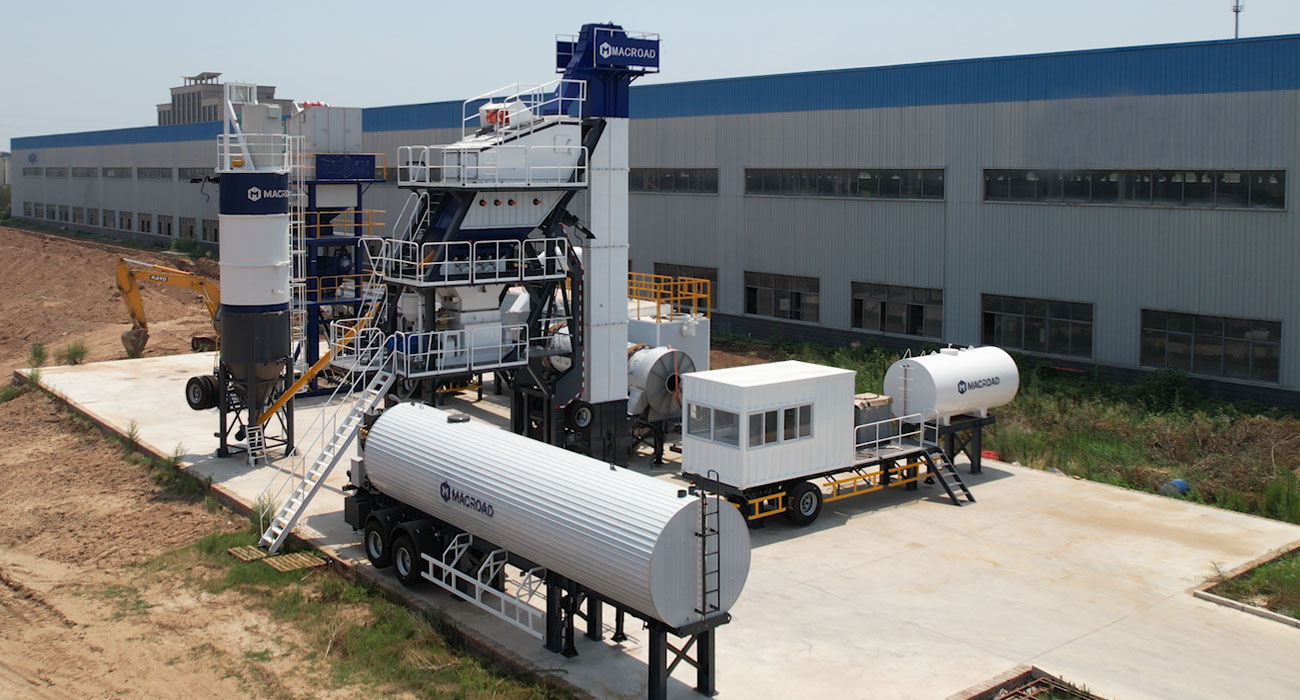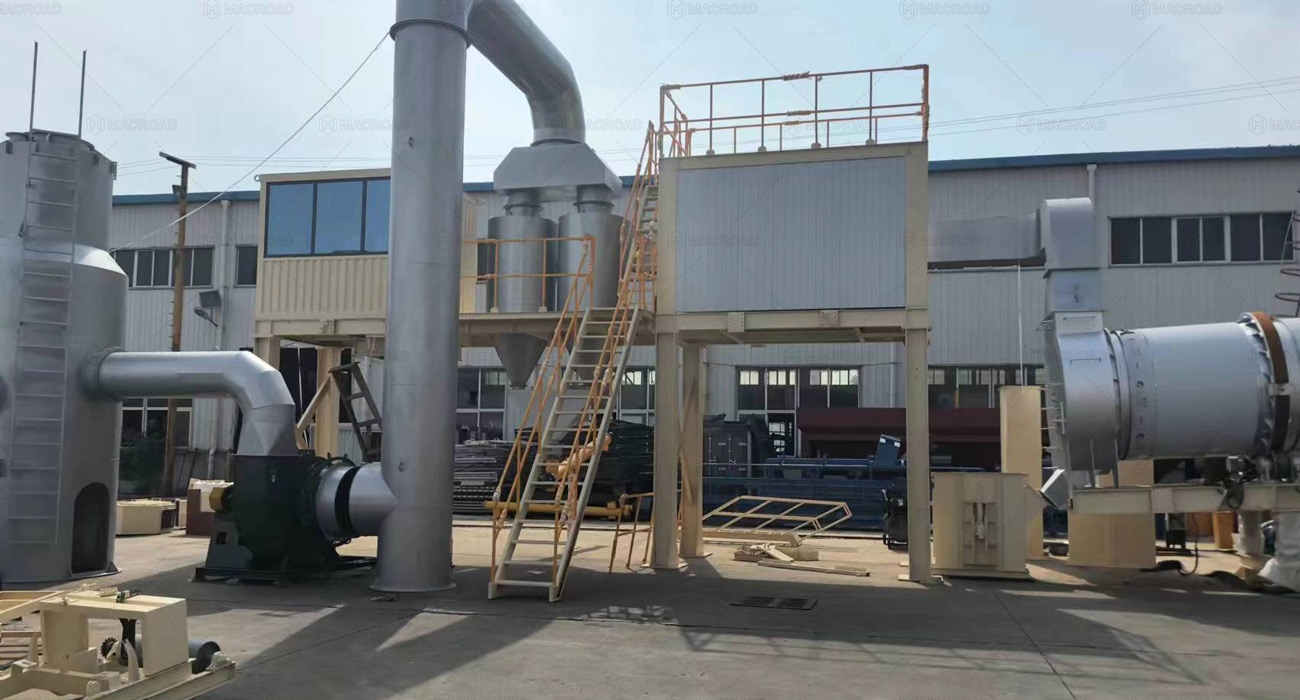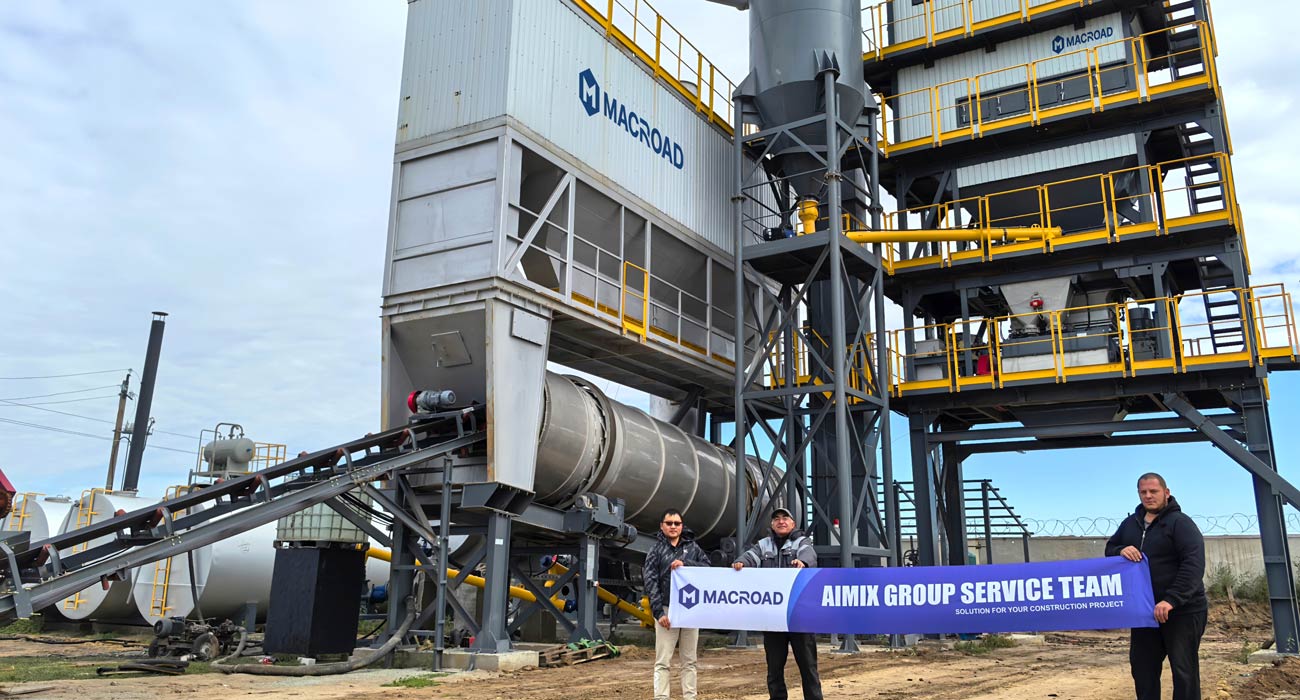As the construction industry increasingly moves toward sustainability, the need for asphalt batching plants to adapt to special raw materials, such as high-proportion recycled materials, has become vital. The ability to modify processes effectively can vary significantly between mobile asphalt plants and stationary plants. This article explores how these differences impact the question of “how much is an asphalt plant worth?” and how asphalt plant suppliers, like Macroad, balance this value with practical production needs through optimization solutions.

Differences in Process Adjustment Difficulty
When it comes to adapting the asphalt batching plant process for special raw materials, the challenges faced by mobile asphalt plants differ from those of stationary plants. Mobile asphalt plants are designed for flexibility and quick setup, which often translates to a simpler operational framework. However, this flexibility can also mean that they may lack the robust systems and control mechanisms found in stationary plants, making it more difficult to adjust the process for high-proportion recycled materials.
Stationary asphalt plants, on the other hand, usually offer more advanced technology and equipment designed for precise adjustments. This means they can more effectively accommodate various raw materials, including recycled options, which often require specific handling and processing techniques. The complexity of these adjustments can significantly influence the perceived value of the asphalt plant. For instance, a stationary plant might command a higher price due to its capability to efficiently manage diverse raw materials, whereas a mobile asphalt plant may be seen as less valuable if it cannot adapt as easily.
Understanding these differences is crucial for potential buyers when evaluating how much an asphalt plant is worth. The adaptability of the plant directly impacts its operational efficiency and potential profitability, especially in a market that increasingly prioritizes sustainability.

Balancing Value with Production Needs
Asphalt plant suppliers, such as Macroad, play a critical role in helping customers navigate the challenges of adapting their plants to special raw materials. By offering process optimization solutions, they can help balance the value of the plant with the actual production needs of the customer.
For example, suppliers may recommend specific technological enhancements or modifications to existing equipment that enable better handling of recycled materials. These upgrades can include advanced metering systems, improved mixing technologies, and enhanced quality control measures. By investing in these optimizations, customers can increase the versatility and efficiency of their asphalt batching plant process, thereby enhancing their overall production capabilities.
A well-optimized plant not only improves the quality of the asphalt produced but also ensures compliance with environmental regulations, which is increasingly important in today’s market. Suppliers can provide valuable insights into the cost-effectiveness of these enhancements, allowing customers to make informed decisions about their investments.

Long-Term Considerations in Asphalt Plant Investment
When considering how much is an asphalt plant worth, it’s essential to think beyond the initial purchase price. Long-term operational efficiency, adaptability, and sustainability should be key factors in the decision-making process. For instance, while a mobile asphalt plant might be less expensive upfront, its limitations in adapting to special raw materials could lead to higher operational costs in the long run.
Investing in a stationary plant that can effectively manage high-proportion recycled materials may involve a higher initial investment but can yield substantial benefits over time. These benefits include reduced material costs, improved product quality, and enhanced compliance with environmental standards, which ultimately contribute to greater profitability.
In conclusion, as the need for asphalt batching plants to adapt to special raw materials grows, understanding the differences between mobile and stationary plants becomes increasingly important. The challenges in process adjustment not only influence how much an asphalt plant is worth but also inform the strategies that asphalt plant suppliers, like Macroad, use to optimize production. By focusing on process optimization solutions, suppliers can help customers maximize their investments while ensuring they meet the evolving demands of the industry.